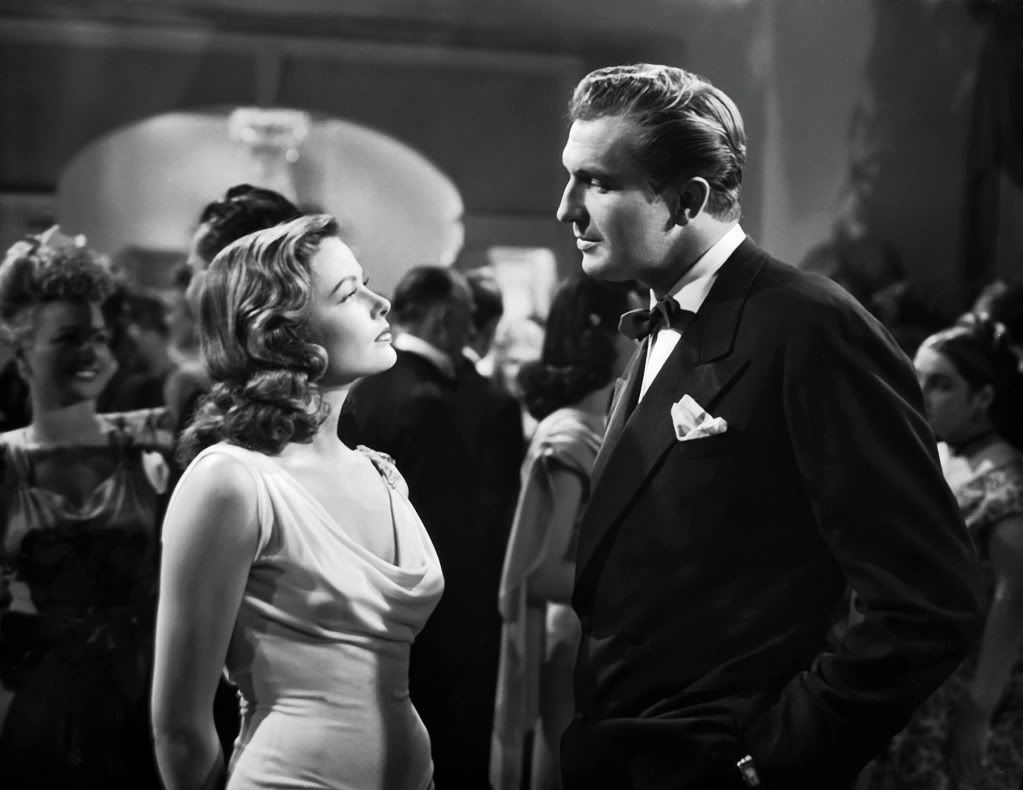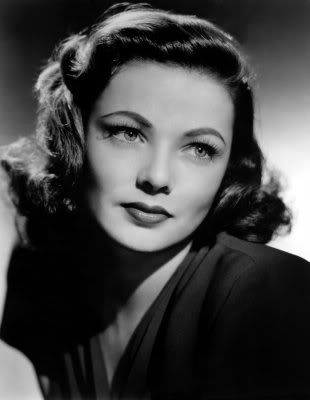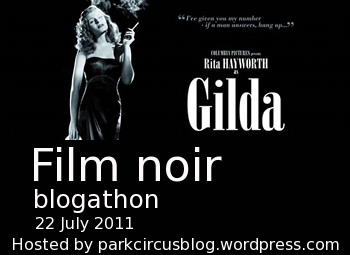
(if you intend to watch this film, please don't read this review, for here there be spoilers. Watch it, then come back!)
I really enjoyed watching this, though there were so many things that just didn't work. This film is so beautiful in its construction, but is really let down by certain aspects of its execution.
Certainly there are smaller issues like, why are the cops bugging the apartment of a dead woman? Why does McPherson think to check the grandfather clock in the first place? Handwave, handwave.
But there are a number of more serious problems, chiefly centering on the character of Laura Hunt and her portrayal by Gene Tierney. For instance, why is she so dumb? A better actress might have sold the idea that a woman who is so wildly successful in her professional life* could be so willfully stupid in her personal life. I mean the only explanation offered is that she's a sucker for a "lean and hard body." Anyone in the audience could have told her that VINCENT PRICE IS A CREEP.
At least in the case of her falling for Shelby, we can accept that there are details we are not privy to, as the story of their courtship is recounted by Waldo, whom we resolutely do not trust. Hell, we've been TOLD not to trust him in the beginning of the film, when he says he often changes details to make stories more exciting (and to make himself look better, though he doesn't mention this explicitly).
Why, then, does Laura fall for Mark McPherson? Is it simply because he's another "lean and hard body"? It's clear why he falls in love with her, this idealized image of a beautiful dead woman who only lives on in a dramatic painting over the mantel. But there's literally nothing to explain her sudden love for McPherson apart from Waldo's intimation that she's flighty, which certainly doesn't seem true based on Tierney's performance or what we know of Laura. If anything, Laura is too steadfast and too bull-headed.
As mentioned before, everything we learn of pre-death Laura, we learn through Waldo's soft-focussed memories. She is described as an ideal of womanhood, an arbiter of taste and a paragon of ambition, just like Waldo himself. But when Laura comes back to life, Tierney's performance just isn't up to the challenge of simultaneously playing a flawed human being and a woman who would be idealized in such fashion not only by Waldo, but by everyone.
Sure, she's as unforgettably beautiful as Laura ought to be, but her performance lacks the conviction to sell us on the fact that not only is Waldo misremembering the details pertinent to the case, he does not remember Laura as she actually was. There are no subtle changes between how she plays Laura in misty-eyed flashback and how she plays Laura in reality. So when she gives her climactic speech to Waldo about being done with him, there's no emotional heft behind it, no mirror or recognition of the falsehoods and untruths that comprise the entirety of Waldo's character. To put it simply, her performance lacks depth.
Now I don't mean to rag so hard on this film, because as I said it has much to recommend it. The plotting is nearly impeccable, and has the perfect balance between the audience figuring things out and the detective figuring things out. Clifton Webb is superbly entertaining as the sort of Addison DeWitt gone horribly wrong, and it's wonderfully jarring to see a young Vincent Price play a suave "pretty boy". The dialogue is pitch-perfect.
What bothers me isn't that what is left on the screen is bad, persay, but that there are a number of missed opportunities. But I can't help but think this movie ranks high up in all the AFI lists just because Gene Tierney is so damn beautiful (and she really is. She makes Rita Hayworth look like the girl next door).

Let me know what you think about Laura in the comments!
*Laura's professional success reminds me of one of the chief criticisms of Mad Men that's becoming increasingly difficult to ignore: that Peggy Olson's journey is 20 years too late. The offices of Sterling Cooper are diversifying in the 1960's, while it's well documented that women were holding Don Draper's position in the 1940's (like Laura) and even African-Americans were integrated in the 1950's. Not to cheapen Peggy, who is one of my all-time favorite characters, but it does lend credence to the frequent critique of Mad Men as being all about the superficial trappings of the 1960's while inventing a social reality that simply does not exist. Likewise, Betty Draper's journey would have happened in the early 1950's, not the mid-60's.

Stop by at Park Circus for an ongoing series about film noir, particularly focussing on Gilda, which I wrote about previously here: http://theoncominghope.blogspot.com/2011/03/blog-noir-gilda.html














0 comments:
Post a Comment